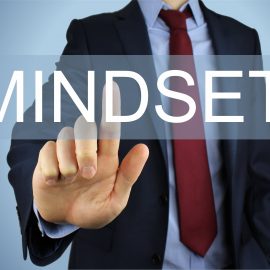

This article is an excerpt from the Shortform book guide to "Maybe You Should Talk to Someone" by Lori Gottlieb. Shortform has the world's best summaries and analyses of books you should be reading.
Like this article? Sign up for a free trial here .
Why does Lori decide to seek therapy? How does she meet therapist Wendell Bronson?
After breaking up with her boyfriend, Lori finds herself in deep despair. Her friend suggests she seeks therapy. Upon her friend’s recommendation, she meets therapist Wendell Bronson, who counsels her throughout the book.
Read about Lori’s sessions with her therapist Wendell Bronson.
Wendell Bronson: Therapist for the Therapist
Lori has just broken up with her long-term boyfriend, whose name is not given. The boyfriend left because of Lori’s 8-year-old son—his own kids will be moving out soon, and he doesn’t want to be tied down anymore once that happens.
After the break-up, Lori tries to go on with life as normal, but she can’t stop obsessing over her ex. Two weeks later one of Lori’s friends suggests that she should see a therapist, and Lori knows her friend is right.
Lori contacts a colleague—an associate, not a friend—to get a referral. After considering and rejecting a number of possible therapists, she settles on therapist Wendell Bronson, who meets all of her criteria.
Lori has her first appointment with Wendell to start sorting out her own story. Wendell doesn’t open with the usual questions, he just sits and waits for Lori to speak. She breaks down and tells Wendell about the breakup while crying uncontrollably. Lori is in her 40s now, and she’s lamenting the fact that half her life is over and she’s back to being single. While explaining what happened, she tries to cast her ex in the worst possible light. She explains all about his history of avoidant behavior, and she repeatedly asks Wendell to confirm that what her ex had done was wrong.
Wendell doesn’t do this. Instead, he notes that it’s odd she knew so much about her ex’s patterns of avoidance and was still blindsided. He also suggests that she may be grieving something bigger than simply a failed relationship.
However, Lori isn’t ready to confront deeper issues yet. She goes back to talking about her ex. Wendell allows this, knowing that they have to build trust and understanding before they can address the underlying problems. Lori’s next several sessions go much the same way.
Lori’s Epiphany
Finally, during one session Wendell interrupts Lori by kicking her foot. He jokingly says that since she seemed to be enjoying suffering so much, he thought he’d help with it. In their subsequent sessions, Lor realizes that her behavior is a defense mechanism. She wonders why she’s obsessing about her ex-boyfriend even though she knows it’s painful—what is she defending herself from?
She also recognizes that she’d also using avoidant behavior herself during the relationship, ignoring a lot of clues that might have made the seemingly sudden breakup less shocking. Lori now understands that she isn’t just mourning the end of a relationship, she’s mourning the loss of the future she thought they’d have together.

———End of Preview———
Like what you just read? Read the rest of the world's best book summary and analysis of Lori Gottlieb's "Maybe You Should Talk to Someone" at Shortform .
Here's what you'll find in our full Maybe You Should Talk to Someone summary :
- How a psychotherapist found herself in need of therapy
- How the therapist sees her own fears and feelings reflect in her patients
- Why you have to be ready to accept uncertainty if want to enjoy life






